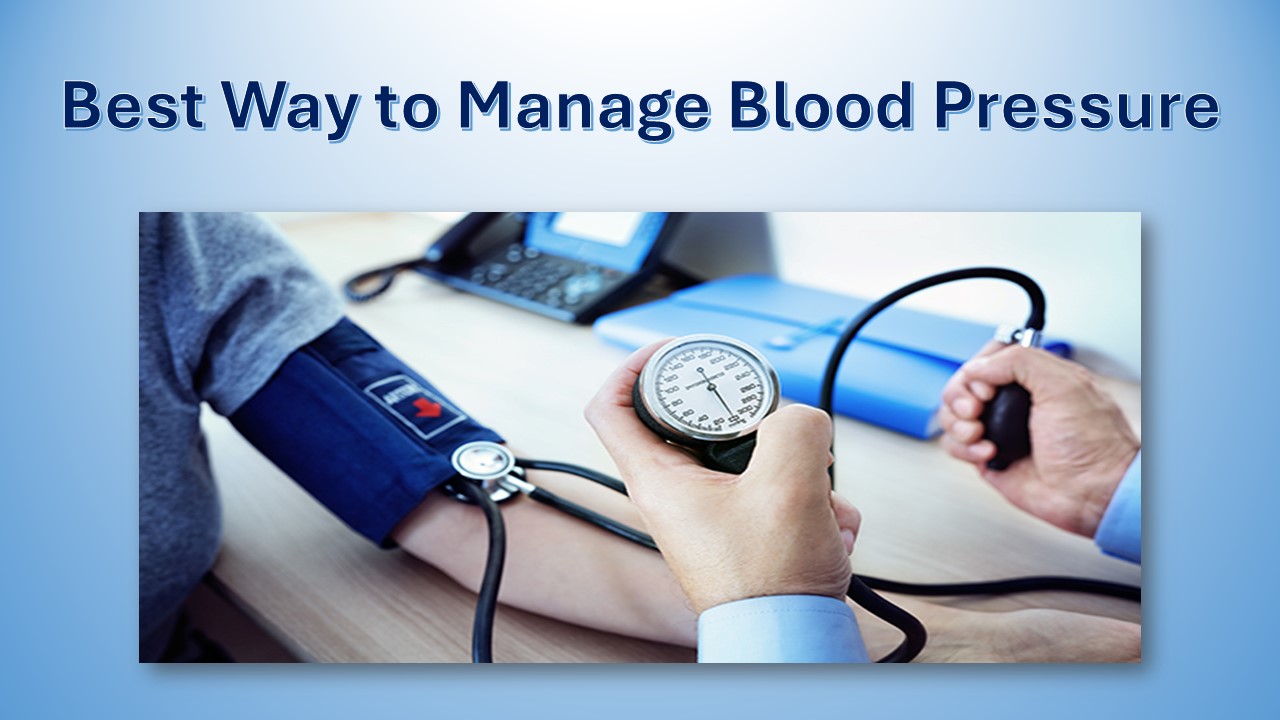Best Way to Manage Blood Pressure - PowerPoint PPT Presentation
Title: Best Way to Manage Blood Pressure
1
Best Way to Manage Blood Pressure
2
- Blood pressure is the term used to describe the
force that blood applies to the artery walls when
the heart pumps it throughout the body. - It is typically measured with two numbers
- The systolic pressure (the top number) represents
the pressure during heart contractions. - The diastolic pressure (the bottom number)
represents the pressure when the heart is in a
state of rest between beats.
3
To effectively manage blood pressure, it is
essential to follow a healthy lifestyle that
includes a balanced diet, regular exercise,
maintaining a healthy weight and many more.
Additionally, consulting with a healthcare
professional and taking prescribed medications as
directed can greatly contribute to managing blood
pressure levels.
4
Healthy Diet
Follow a diet rich in fruits, vegetables, whole
grains, lean proteins, and low-fat dairy products
while minimizing sodium (salt), saturated fats,
and cholesterol.
5
Maintain a Healthy Weight
Follow a diet rich in fruits, vegetables, whole
grains, lean proteins, and low-fat dairy products
while minimizing sodium (salt), saturated fats,
and cholesterol.
6
Regular exercise
Engage in moderate-intensity aerobic exercises
like walking, swimming, or cycling for at least
150 minutes per week, or as recommended by a
healthcare professional.
7
Limit Alcohol Consumption
Excessive alcohol intake can raise blood
pressure, so it's important to moderate your
alcohol consumption.
8
Quit Smoking
Smoking damages blood vessels and can increase
blood pressure. Seek guidance and support to quit
smoking if needed.
9
Manage Stress
Find healthy ways to cope with stress, such as
exercising, practicing relaxation techniques, or
engaging in hobbies.
10
Limit Caffeine
While research on caffeine's direct impact on
blood pressure is mixed, it's advisable to
moderate caffeine intake, as excessive
consumption may temporarily increase blood
pressure.
11
Get Enough Sleep
Aim for 7-8 hours of quality sleep per night.
Lack of proper sleep can be a factor in causing
hypertension.
12
Monitor Sodium Intake
Reduce the amount of sodium in your diet by
avoiding processed foods, fast food, and adding
less salt to your meals.
13
Stay Hydrated
Drink plenty of water and limit sugary beverages
to maintain proper hydration.
14
Remember, these lifestyle changes should
complement your prescribed treatment plan and be
done in consultation with your healthcare
provider. Regular blood pressure monitoring is
essential.































